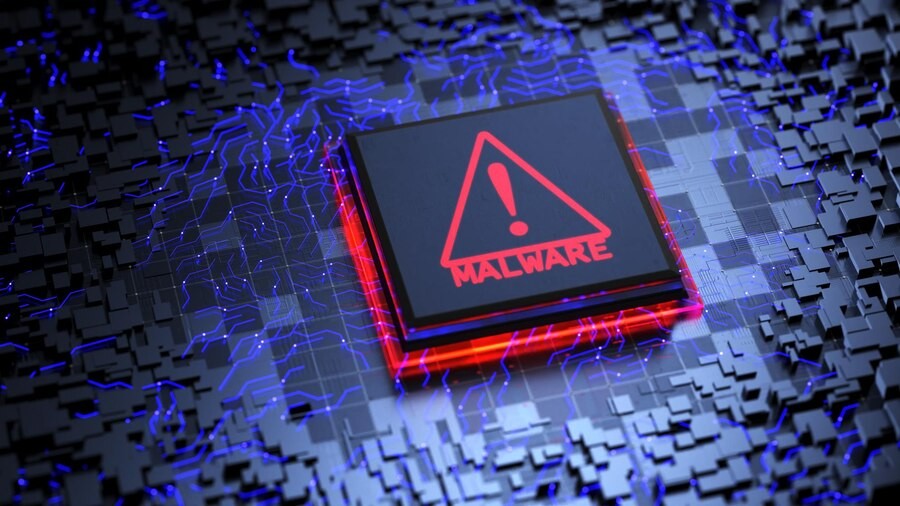What You Should Do to Keep Malware and Viruses Off Your Computer

Introduction
Maybe you're as addicted to your computer as I am. It's also a prime target for cybercriminals who want to access your private data or infect your device with malware. Fortunately, there are measures you may take to defend yourself:
Always use the most recent version of any program installed on your computer.
Protecting yourself from viruses and malware is as simple as keeping your software up to date. By ensuring that the most recent security patches, bug fixes, and other enhancements have been implemented, updating can help keep your computer secure.
Never download an attachment sent to you through email or text message from someone you don't know.
When you're at your computer, it's simple to check your inbox for new messages. They will inform you if they need to attach something to their message.
Select "Yes" to open the message if it's urgent and crucial to your company's success. If it looks like spam or worse, malware, though, it's better to ignore it. Please visit Onovoinfo.com.
The Internet is not the place to share private information.
Avoid disclosing sensitive information while using the Internet.
Even more so if you use the same password for many accounts, keep your passwords to yourself.
Avoid opening links in Facebook messages or emails, even if the sender looks familiar, as doing so could expose you to infection.
Don't send sensitive information like a credit card number or social security number by email. Don't give out this information until you're convinced there's nothing fishy about the message asking for it (like typos). If you're truly worried about hackers getting their hands on some of your financial information, you should probably shred any copies of checks that contain those numbers before mailing them out.
Avoid completely free services, even trials.
Be wary of what you install after downloading an application. Be careful about where you get your free downloads from, as some of them may be malicious and cause damage to your computer if you don't take precautions. Before installing any program you receive as an attachment in an email or through a social networking site, it's best to verify its authenticity with the developer (such as Facebook).
Malware can also be spread through free trials that are downloaded onto your computer. Free trials are used by many businesses to attract customers, but they can also be exploited by hackers if you're not careful. If something seems too good to be true, it probably is.
Protect your computer with a firewall, anti-virus, and anti-spyware software.
Virus protection software
Security applications that can detect and remove spyware
A protective wall
Maintain contact information for a competent IT support team.
A dedicated IT team can assist with any issues that arise. In little time at all, they'll be able to determine the problem's source and implement a solution.
In the absence of an in-house IT team, you should immediately seek out outside help.
Be sure to save your private documents in a secure location (like a safety deposit box).
Be sure to encrypt any private documents you may have.
Please do not store them in your computer or any other electronic medium.
Put them away in a secure place like a home safe, bank safe, or safety deposit box.
When a breach occurs, you should know who to call.
Knowing how many people are impacted by your case is crucial if you are the victim of a breach. If possible, it's also a good idea to keep a log of the people who have been informed and when they were informed. This will help you stay organized in the event that any further issues arise.
If you suspect that your computer has been compromised by malware or another infection, you should get in touch with the authorities and inform them of your findings. They will know if somebody has been the victim of a crime (including yourself).
In the event that money was stolen from an account as a result of this type of incident, it is important to notify the relevant financial institutions so that they can place a hold on the compromised accounts until further notice. Get in touch with your ISP: Where you live in respect to ISPs might have an impact on the severity with which security breaches are dealt with; however, certain ISPs may give free support regardless of location. Some Internet service providers (ISPs) may require payment in full before a customer can subscribe to a plan that includes security features like antivirus software; however, other ISPs may offer these features for free or for a nominal annual price (often $50 to $100).
Computer security is hardly rocket science, but following these steps will help.
Malware and viruses are easily accessible on the internet and should be familiarized with by any computer user. Knowing what a virus is and why it's dangerous is the first step in keeping your computer safe. In order to spread from one machine to another, a virus must be packaged as an executable program that can be sent via email or P2P networks (a file sharing app). Flash drives, compact discs, digital video disks, and even floppy disks can all be vectors for virus transmission.
In spite of the similarities in their names, viruses and Trojans are completely harmless to your computer and will only hinder its performance by making it more difficult to access specific files on the hard drive.





